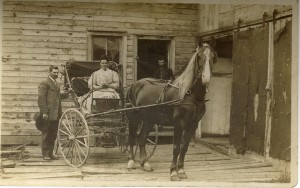 January 31, 2010
January 31, 2010
Medical research has shown that there are some patterns linked to racial group categorization in how some medicines work. Some medicine may metabolize faster or slower for some racial groups–in general. Lower does of some medicne may be required for treatment of members of some racial groups–in general. Similar patterns have been observed when comparing how men and women respond to some medications or therapies–in general.
What’s wrong with talking about race-based medicine?
First, stereotypes emerge from communicating about any group as if every member of the group behaves and responds in the same way to anything. Not everyone in the group will respond as suggested.
Second, it may seem to suggest that others who are not members of the racial group are less at risk for a condition. If we are a member of a different group, we may distance ourself from feeling at risk for the condition and socially distance ourselves from those who are at risk. This may happen because communicating the medical research that finds members of a particular group seem likely to respond in a particular way may seem to suggest that anyone not mentioned is not at risk. If, for example, efforts are made to commmunicate about a particular group’s response to treatment for heart disease becomes the focus of advertisements aimed at selling the treatment to members of the group, the unintended message may be, ‘They aren’t talking about me so I have less risk for heart disease.’ When communicating about therapies for men, for example, women may have long assumed that they were not a risk for heart disease, and that, of course is not true.
Third, communicating about race-based medicine may unintentionally contribute to the formation of stereotypes. As shorthand, classifying someone as a member of a group reduces our uncertainty about how we expect he or she will ‘be.’ As a result of such communication, we may, for example, form views that all members of a particular racial group are at risk for a particular health condition.
Finally, stereotypes of others and our own feelings of social distance from them often forms the foundation for stigma…our feelings of stigma about people and conditions, and our behavior toward those we consider to be members of a stigmatized group.
In sum, communicating about race-based medicine must be done with care to achieve valuable health outcomes and to limit harmful social outcomes.




 January 12, 2010
January 12, 2010 January 4, 2010
January 4, 2010 January 1, 2010
January 1, 2010